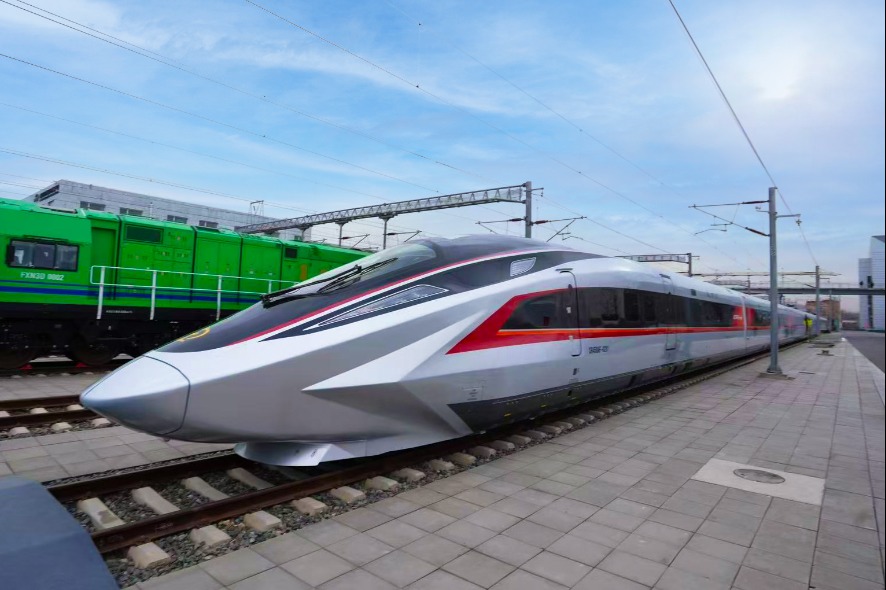Experienced partners
BRICS can play an important role in advancing the African Continental Free Trade Area


BRICS can play an important role in advancing the African Continental Free Trade Area
South Africa's 2023 BRICS agenda centers on the role of Africa under the theme "BRICS and Africa: Partnership for Mutually Accelerated Growth, Sustainable Development and Inclusive Multilateralism". It has highlighted five priorities: a just transition, education and skills building, trade and other opportunities under the African Continental Free Trade Area, the United Nations' Sustainable Development Goals, and strengthening multilateralism.
This agenda takes its impetus from South Africa's National Development Plan 2030, which aims to eliminate poverty and reduce inequality by that year. The policy document emphasizes the importance of Africa and the future of human development through industrialization and trade. Africa is South Africa's priority, and so South Africa's BRICS outreach strategy looks to bring the continent closer to strategic partnerships within the context of the three pillars of cooperation — political, security, and financial and economic cooperation.
Each BRICS summit highlights the importance of close economic cooperation and development. The 14th BRICS Summit Beijing Declaration emphasized international mechanisms such as the World Trade Organization and its reform in the context of rising inflation and increasing protectionist tendencies and inward-looking policies. The strategy looks to economic trends and conditions with trade as a significant proponent to navigating geopolitical and geo-economic challenges, including intra-BRICS cooperation. This strategy outlines the importance of including and creating relationships between micro, small and medium-sized enterprises and their burgeoning role in the macro-trade environment, as well as supporting established institutions and enhancing higher levels of BRICS integration including areas of investment and finance.
The BRICS representatives are encouraging African countries to seek export-led industrialization, seeing the future of trade based on the continent's competitive advantage. This is what the AfCFTA wants to achieve for African countries. Established in 2018, it has quickly gained support across the continent. Only African countries may hold membership, and with 1.3 billion people and across 54 countries, it has the potential to be the largest free trade agreement in the world. This would mean progress on moving capital more freely, enhancing competitiveness and market resilience, creating a continental customs union, resolving challenges around overlapping regional economic community membership, and establishing a dispute settlement mechanism. However, even with all of its potential, African countries still have a long way to go to start trading under the AfCFTA and find competitive advantages among each other within the framework. Moreover, there is a risk that traditional trade relationships continue to focus on primary commodity exports, driving attention to existing industries rather than creating new ones.
The summit is an opportunity for the BRICS countries to diversify their engagement with African countries.
The 2022 launch of the Pan-African Payments and Settlements System by the AfCFTA secretariat, Afreximbank, and African Union Commission, allows payments among companies operating in Africa to be done in any local currency, which facilitates and accelerates trade transactions. This mobilizes market access for both buyers and sellers remarkably.
The BRICS countries are no strangers to cross-border local currency trading. With the launch of the 2010 BRICS Interbank Cooperation Mechanism, the BRICS members have experience of investing in regional financial services and leapfrogging technology in developing countries that still have quite a scope for investment in terms of mobile wallets or super apps, or better management of future digital assets. The rise of e-commerce and the ease of paying for goods allow businesses to expand exponentially. However, even promoting the scope of expansion does not guarantee immediate growth of African markets under the AfCFTA, and so approaches to non-tariff barriers need to be all inclusive. For example, African governments grapple with the sensitive challenge of transforming informal businesses, while being supportive to ease socioeconomic pressures and providing entrepreneurs with a nurturing environment.
Public information campaigns have been able to address formalized businesses and it is anticipated that other business may grow and therefore employ more people in manufacturing sectors. Access to resources is still vital; and having the resources to register a business is key. Informal businesses in Africa are particularly vulnerable. Without registration, these businesses have no access to fair financing or credit, which acts as a safety net in times of economic downturns. Even though they have a complex intertwining with the formal sector and are not separated geographically, there is little incentive to formalize and there are often many barriers inhibiting business growth: corruption, inefficient bureaucracies, policy and governance instability, debilitating social factors impacting on work performance, as well as the lack of access to stable energy and infrastructure. The AfCFTA does have the potential to improve GDP, but it is still concentrated in pockets of excellence, which exclude a population that needs urgent access to sustainable work opportunities. It is in this context that BRICS could show its potential as a partner by investing in financial and economic cooperation through its people-to-people exchanges.
This author is a senior researcher at the Institute for Global Dialogue in Pretoria, South Africa. The author contributed this article to China Watch, a think tank powered by China Daily. The views do not necessarily reflect those of China Daily.
Contact the editor at editor@chinawatch.cn.

































